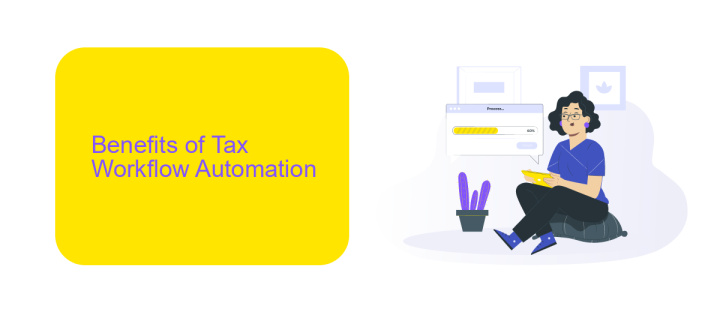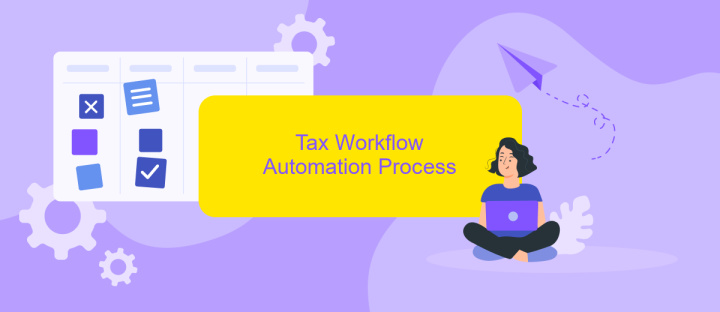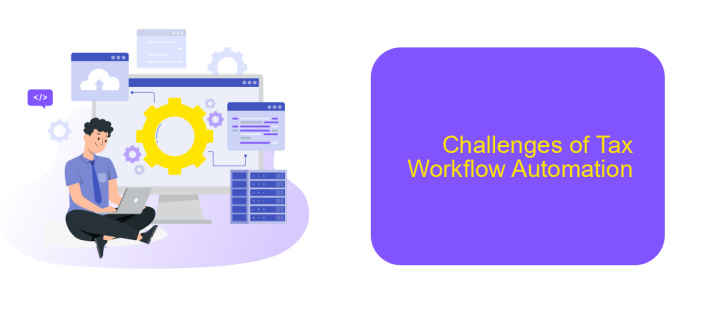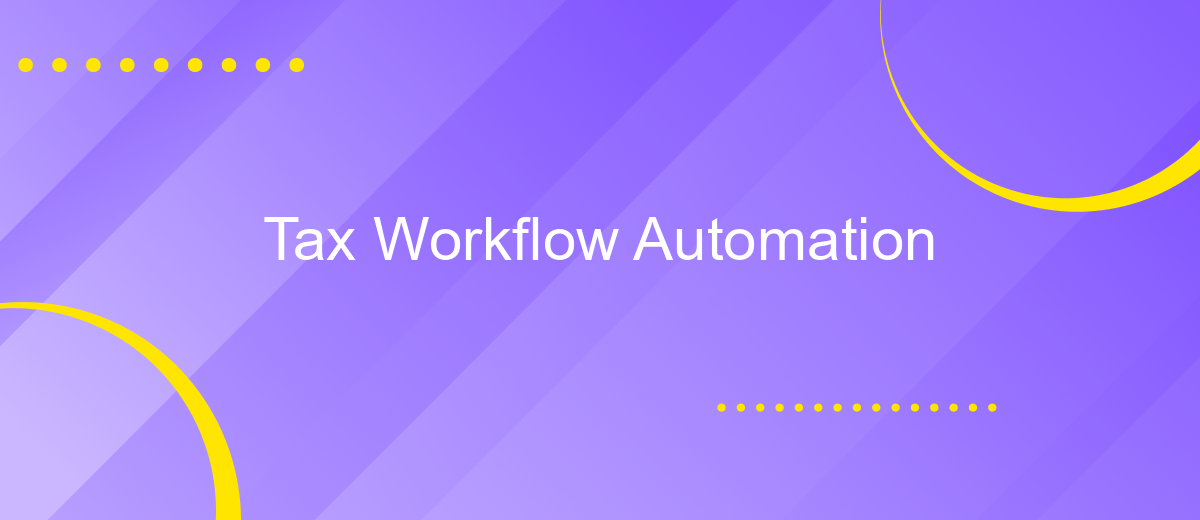Tax Workflow Automation
Tax workflow automation is revolutionizing the way businesses handle their tax processes. By leveraging advanced technologies, organizations can streamline tax preparation, compliance, and reporting, reducing manual effort and minimizing errors. This transformation not only enhances efficiency but also ensures accuracy and timely submission, allowing businesses to focus on strategic growth and innovation. Discover how automation can redefine your tax operations.
Introduction
Tax workflow automation is revolutionizing the way businesses handle their tax processes. By streamlining and automating repetitive tasks, companies can significantly reduce the time and effort required for tax compliance, thus minimizing human errors and improving overall efficiency. This transformation is driven by advanced software solutions that integrate seamlessly with existing financial systems and provide real-time data analysis.
- Reduction in manual data entry
- Improved accuracy and compliance
- Real-time data processing and analysis
- Seamless integration with existing systems
One of the key players in this field is ApiX-Drive, a service that facilitates the integration of various applications and systems. By using ApiX-Drive, businesses can automate the flow of information between their tax software and other financial tools, ensuring that data is always up-to-date and accurate. This not only saves time but also enhances the reliability of tax reporting, making tax workflow automation an indispensable asset for modern enterprises.
Benefits of Tax Workflow Automation

Tax workflow automation offers numerous benefits for businesses, including increased efficiency and accuracy. By automating repetitive and time-consuming tasks, companies can significantly reduce the risk of human error, ensuring that tax calculations and filings are precise. This not only saves time but also minimizes the likelihood of costly mistakes and penalties. Additionally, automation allows for real-time data processing, providing businesses with up-to-date financial information that aids in better decision-making and strategic planning.
Another significant advantage of tax workflow automation is the seamless integration with other business systems and applications. Services like ApiX-Drive facilitate these integrations, allowing for smooth data flow between various platforms. This interoperability ensures that all relevant financial data is synchronized and easily accessible, reducing the need for manual data entry and further decreasing the chance of errors. Moreover, automating tax workflows can lead to enhanced compliance with tax regulations, as the system can be programmed to stay updated with the latest tax laws and requirements, ensuring that businesses remain compliant effortlessly.
Tax Workflow Automation Process

Tax Workflow Automation streamlines the process of managing tax-related tasks, ensuring accuracy and efficiency. By automating these tasks, businesses can reduce manual errors, save time, and ensure compliance with tax regulations.
- Data Collection: Gather all necessary financial data from various sources, such as accounting software, bank statements, and invoices.
- Data Integration: Use tools like ApiX-Drive to integrate data from different systems, ensuring seamless data flow and reducing the risk of errors.
- Tax Calculation: Automate the calculation of taxes based on current tax laws and regulations, ensuring accuracy and compliance.
- Reporting: Generate detailed tax reports automatically, providing insights and ensuring that all tax obligations are met.
- Filing: Automate the submission of tax returns to the relevant authorities, ensuring timely and accurate filing.
Implementing a tax workflow automation process not only enhances efficiency but also ensures compliance with ever-changing tax laws. By integrating tools like ApiX-Drive, businesses can streamline data integration, reduce manual workload, and focus on strategic tasks. This holistic approach to tax management helps in maintaining accuracy and reducing the risk of audits and penalties.
Challenges of Tax Workflow Automation

Tax workflow automation presents numerous challenges that organizations must navigate to achieve seamless operations. One of the primary obstacles is the integration of various tax software and systems, which often operate in silos and require significant effort to synchronize.
Another critical challenge is ensuring data accuracy and compliance with ever-changing tax regulations. Automated systems must be constantly updated to reflect new laws, and any discrepancies can lead to costly errors and audits.
- Complexity in integrating disparate systems
- Maintaining data accuracy and compliance
- High initial setup and maintenance costs
- Training staff to effectively use automated tools
Services like ApiX-Drive can facilitate the integration process by providing a platform that connects various tax software, streamlining data flow and reducing manual entry errors. However, organizations must still invest in ongoing training and system updates to fully leverage the benefits of tax workflow automation.
Best Practices for Tax Workflow Automation
Implementing tax workflow automation requires a strategic approach to ensure efficiency and compliance. Begin by mapping out your existing tax processes to identify repetitive tasks that can be automated. Utilize specialized software that integrates seamlessly with your current systems to streamline operations. Regularly update your automation tools to comply with the latest tax regulations and ensure data accuracy. Training your team on the new technologies is crucial to maximize the benefits of automation.
Integration is key to a successful tax workflow automation. Services like ApiX-Drive can facilitate the integration of various platforms, ensuring smooth data flow and reducing manual entry errors. ApiX-Drive allows for easy connection between your accounting software, CRM, and other business tools, creating a cohesive ecosystem. Regular audits of your automated processes will help in identifying areas for improvement and maintaining the integrity of your tax data. By following these best practices, you can enhance the efficiency and accuracy of your tax operations.
- Automate the work of an online store or landing
- Empower through integration
- Don't spend money on programmers and integrators
- Save time by automating routine tasks
FAQ
What is Tax Workflow Automation?
How can Tax Workflow Automation benefit my business?
What types of tasks can be automated in a tax workflow?
How do I get started with Tax Workflow Automation?
Is Tax Workflow Automation secure?
Apix-Drive will help optimize business processes, save you from a lot of routine tasks and unnecessary costs for automation, attracting additional specialists. Try setting up a free test connection with ApiX-Drive and see for yourself. Now you have to think about where to invest the freed time and money!


